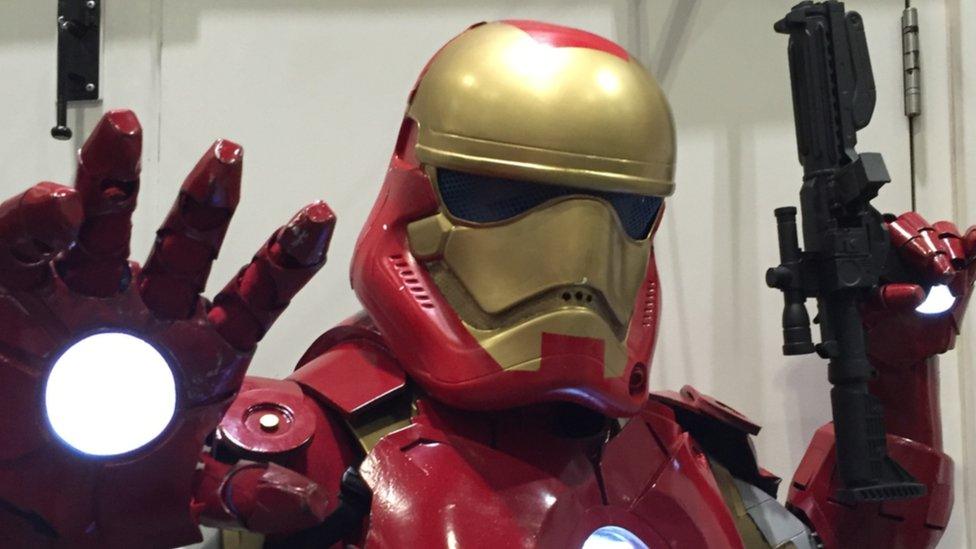Black Cosplay: Why February is a month of celebration
- Published
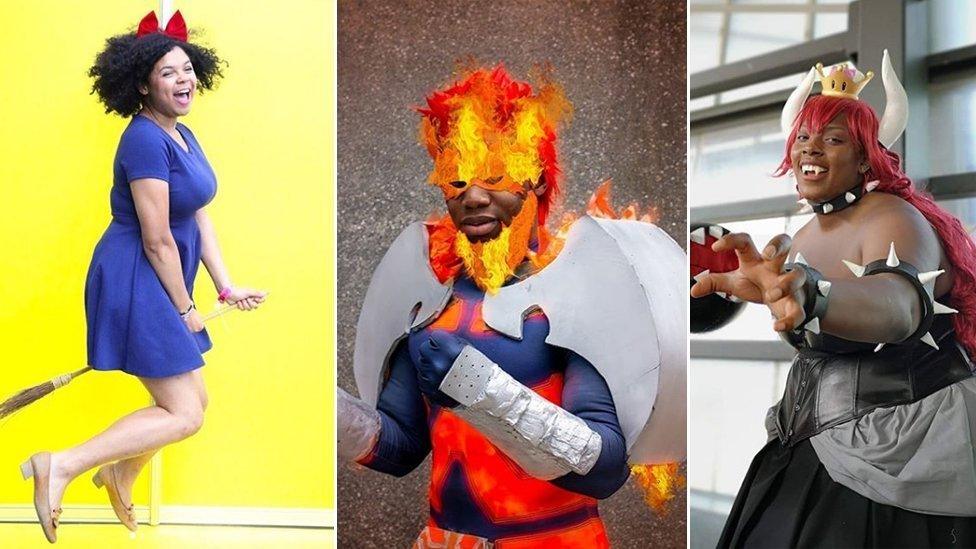
Cosplay lets you turn into anything: a mermaid, a fairy princess, a superhero or a monster.
On the face of it, you couldn't ask for a more inclusive group of people.
But for some black cosplayers, problems have been creeping in.
That's why you might see 29 Days of Black Cosplay being used as a hashtag during February, as black cosplayers celebrate their contribution to the community.
It's also Black History Month in the US - more usually associated with figures like Martin Luther King Jr or Rosa Parks. But for some cosplayers, it can be just as significant to talk about Black Panther or The Little Mermaid.
Specifically - who should be dressing as those characters? And if you cosplay as a character of a different race - do you use makeup to change your skin colour?
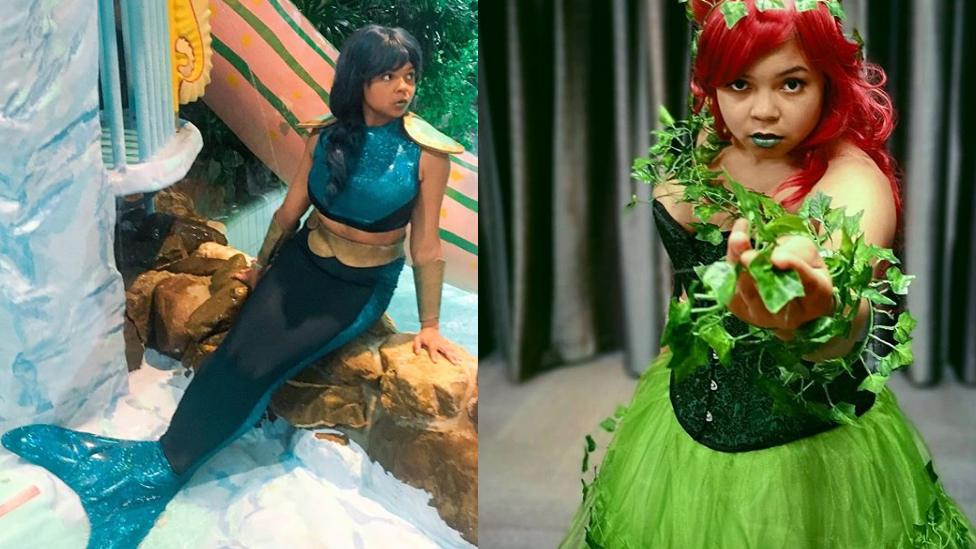
Millie loves sharing her costumes on Instagram
'They've started to do blackface, and that's not OK'
"Cosplay is a massively inclusive world," says Millie George, who's been making her own costumes for the past four years.
But she says there are people who think you should only cosplay people of your own race.
"That's not something that's ever been important to me," the 21-year-old tells Radio 1 Newsbeat.
She doesn't think changing the colour of your face is true to the spirit of cosplay.
"You're being a character. That character isn't a real person, so it isn't important to necessarily be everything that character is. I don't think you need to paint your skin to match. I don't lighten my skin to play characters that are lighter than me."
Kat, who calls herself Curvy Cosplayer on her Instagram feed, agrees.
Allow Instagram content?
This article contains content provided by Instagram. We ask for your permission before anything is loaded, as they may be using cookies and other technologies. You may want to read Meta’s Instagram cookie policy, external and privacy policy, external before accepting. To view this content choose ‘accept and continue’.

"There's quite a few cosplayers who really like a black or brown character. They've started to do blackface and that's not OK.
"You can play whatever colour character you like - you just don't have to pretend to be that race."
She says she has friends who've dressed up as Tiana from Disney's The Princess and the Frog.
"And I've not said 'You're the wrong colour', you know? Or, 'Hey, put this self-tan on'. So yeah, I think just be yourself."
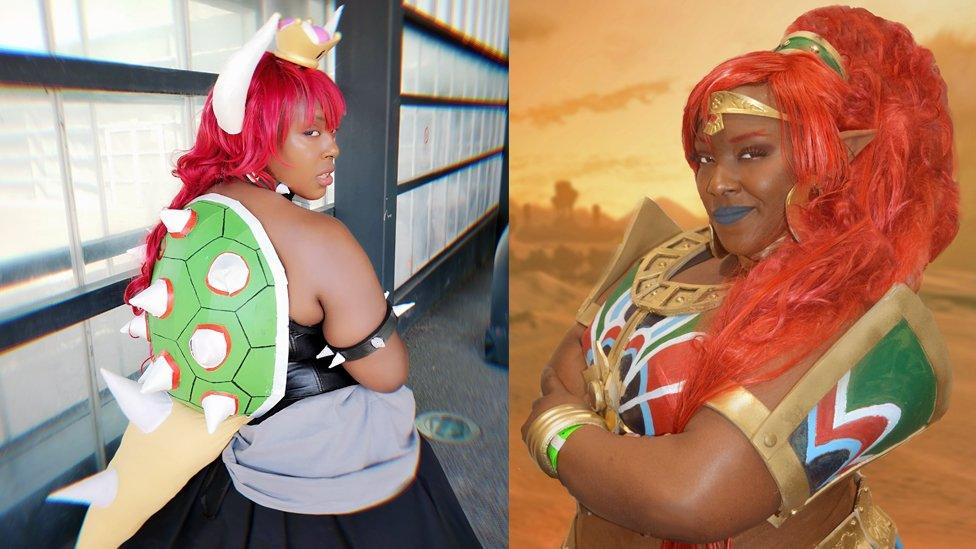
We're not sure, but we *think* Kat likes Nintendo
Millie adds that she's never thought twice about cosplaying a white character.
"They're from a magical world where dragons or witches exist, so I don't think the fact that they're white is super important to their character."
'I was seeing hateful stuff... the N-word'
Part of the attraction of cosplay is putting your costume online for everyone to admire. Popular cosplayers can rack up hundreds of thousands, or even millions, of followers.
But you can also be opening yourself up to unwelcome attention.
When Tyler Mansfield, an American living in England, cosplayed as a character from the anime series My Hero Academia, he was on the receiving end of racist comments.
Allow Instagram content?
This article contains content provided by Instagram. We ask for your permission before anything is loaded, as they may be using cookies and other technologies. You may want to read Meta’s Instagram cookie policy, external and privacy policy, external before accepting. To view this content choose ‘accept and continue’.

"I was there reading all the comments and I was seeing hateful stuff, the N-word. If you go on to bigger black cosplay sharers they can tell you even more stuff.
"Recently a black girl cosplayed one of the girls from (Manga series) Demon Slayer. When you get blown up on twitter more people will see it. More ignorant people will see it, meaning the hate will come to you at that point."
Millie says unkind comments are "not very frequent", but she takes them in her stride.
"We have a community online and in real life. So if we get a weird comment about race or gender or body or anything like that, we'll send a screenshot to each other and laugh about it.
"Someone can be really rude or ignorant online, but that doesn't matter because I have my friends."
'It's all about having fun and being you'
Ultimately, all three cosplayers we spoke to wanted to see #29daysofblackcosplay as a celebration.
"It uplifts black cosplayers internationally," says Kat. "It doesn't matter if you have 300 followers or 19,000 followers.
"Anyone can take part and get their outfits shared by others."


Follow Newsbeat on Instagram, external, Facebook, external, Twitter, external and YouTube, external.
Listen to Newsbeat live at 12:45 and 17:45 weekdays - or listen back here.
- Published1 November 2019
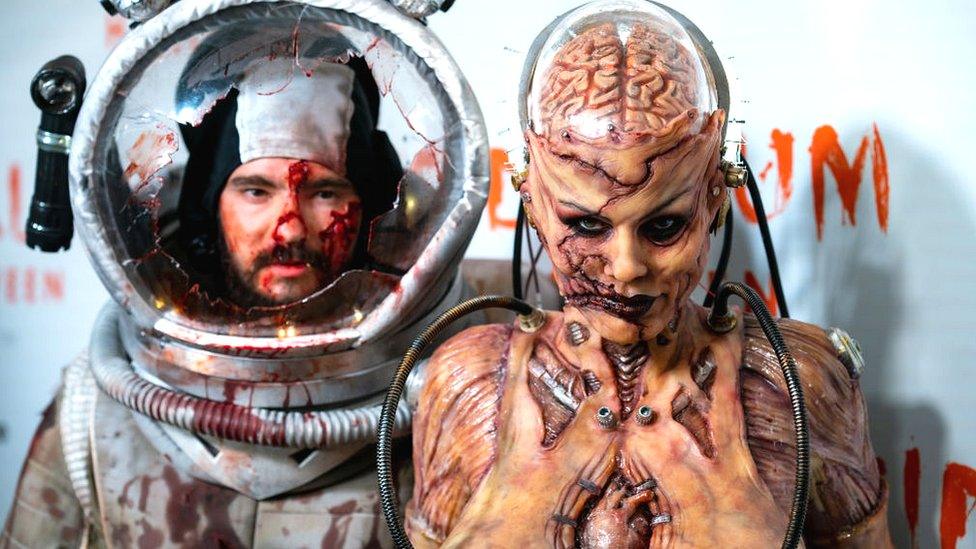
- Published1 November 2019
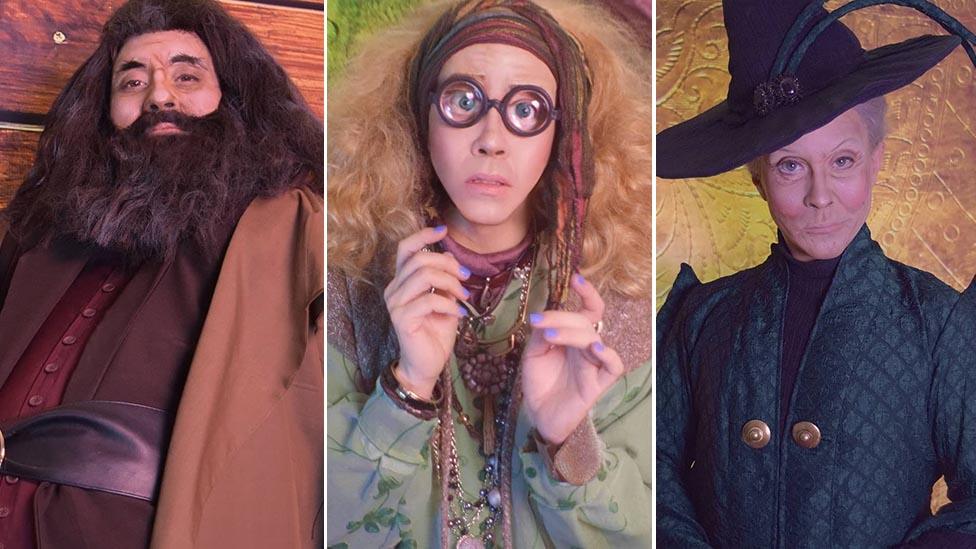
- Published20 February 2016
